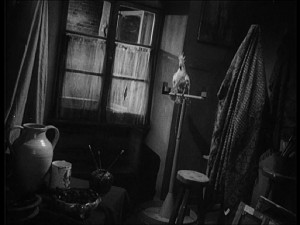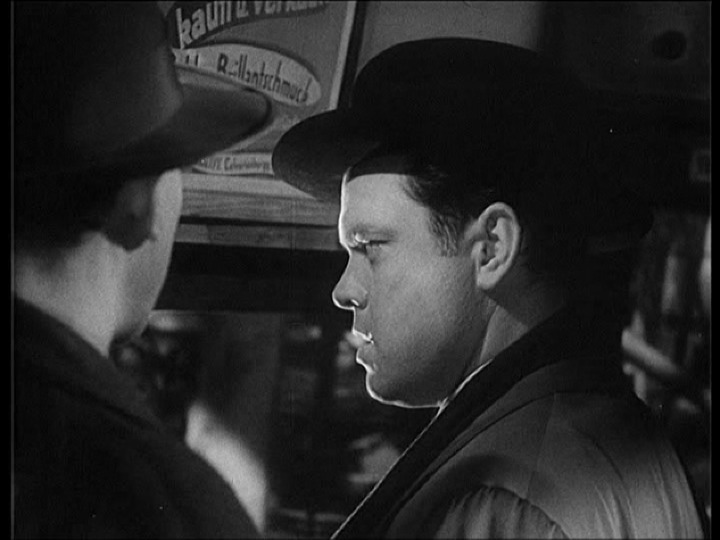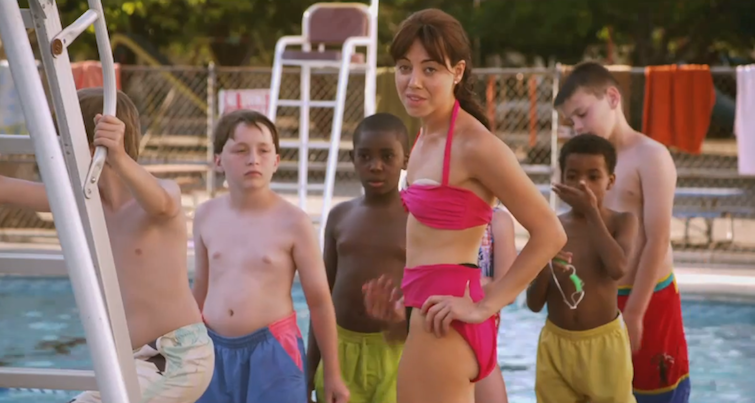I never said SteelFrogBlog doesn’t do classics; I just said I suck at them. Screw it, let’s go – personally, much as I’m a fan of this picture, I doubt very seriously it would get much attention were it not one of the few positive projects attached to Orson Welles.
The Third Man is classic film-noir; for people who don’t know, that means it’s a crime film, almost certainly black & white, artistically shot with a ton of shadow play and will contain at least three moments you don’t understand in one viewing. That’s how directors know they’re making a film noir – they pre-screen it and if the audience can figure out what’s going on at all times, they have to re-shoot.
This particular piece of art is the kind of film grad students wank to. It’s replete with intense cut-away close-ups of weird European folks; it plays with shadows the way that Siegfried & Roy play with tigers and it’s deliberately filmed at odd angels – this is the film’s bread & butter – seriously, half the time Carol Reed said, “you know what? Tilt the camera thirty degrees that way and shoot it again. Yeah, forget the first; I want this picture to look like a ship going down.”
know what? Tilt the camera thirty degrees that way and shoot it again. Yeah, forget the first; I want this picture to look like a ship going down.”
Now, you gotta hand it to Mr. Reed; nobody deliberately shoots a seasick movie; this was new and so innovative it has yet to be followed (yes, yes, film historians, I hear you. F*** off). The fact is, you’ll probably remember The Third Man if for no other reason than that.
It’s post-WWII Vienna. Being part of Hitler’s empire, Vienna was divvied into four separately policed sections post war. This is only important for the understanding that the criminals who ruled the Austrian cobblestone-n-rubble often took advantage of jurisdictional conflict. So into this crippled town comes the ridiculously named Holly Martins (Joseph Cotton), a trash novelist promised a job by good buddy Harry Lime (Welles). Only Lime is dead.
Well, thank you, Vienna. Short film, eh? Oh, this is where the “noir” part comes in; just because a guy died doesn’t mean we can’t have a movie. Hence Martins, lacking a job and loyal to his friend, decides to investigate. And the more Martins finds out, the less any of locals enjoy his company. Among the more curious discoveries is that while Lime was hit by a truck, he knew the truck driver in question; he also knew the men who carted him off the street, the eye-witnesses and everybody who investigated the crime. And none them has exactly the same story of the crime everybody saw. Huh.
Oh, and there’s a girl. There’s always a girl. Anna (Alida Valli) was Lime’s girlfriend; Martins tracks her to a cabaret performance. A modern film would certainly have added some sex to the relationship with Martins – we’re kind of left imagining why he’s so strongly drawn to her when The Third Man doesn’t even have her coyly striptease post-show. It’s hard to tell whether this is a film flaw or not; we certainly guess that Holly has fallen for Anna, but your mind kinda has to fill in the blanks, because, IMHO, there’s not enough on screen to keep him from saying, “screw this; I’m outty,” or whatever the 1940s equivalent was.
Now a cynical reviewer would point out that for the pinnacle of Welles’ career, he’s only in three scenes and only speaks in one of them. Luckily, I am that cynical reviewer, but if I’m being honest, Orson Welles owns the screen when he’s on it. I mean, OWNS, and without saying a single word in the initial spy. The film has palpable electricity when he’s on screen for both scripted and unscripted reasons. Is it enough to make you the fourth man to see this film in 2015? Dunno.
No man is an island,
Regardless of girth
Each is a piece of discontentment
For part of the playin’
If this God be washed away by the drink
Europe is the less
As Welles, a promontory auteur
As Welles, in a manner only his own
Or if thine movie were
Each man’s role diminishes?
For he is involved in filmkind
Therefore, when camera films ask not
For whom the Welles rolls
He rolls for thee
Not Rated, 93 Minutes
D: Carol Reed
W: Graham Greene, Orson Welles, Carol Reed
Genre: Orson
Type of person most likely to enjoy this film: Historians
Type of person least likely to enjoy this film: People who grew up without a taste for black & white
Parody inspired by “For Whom the Bell Tolls”



